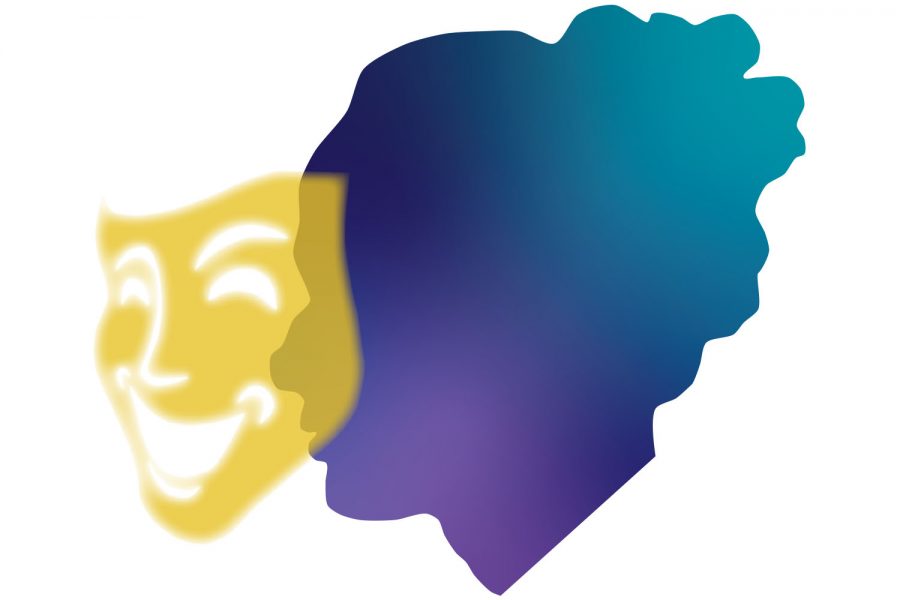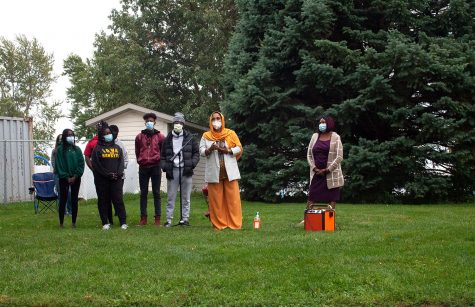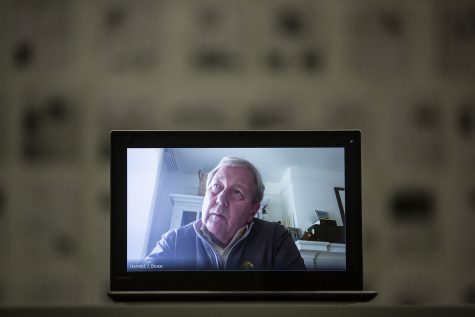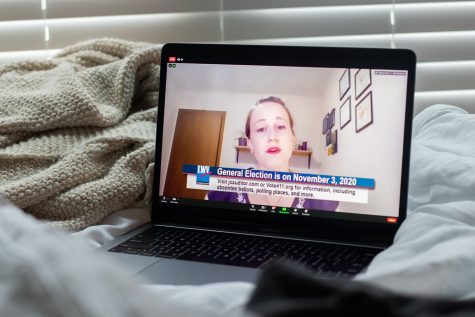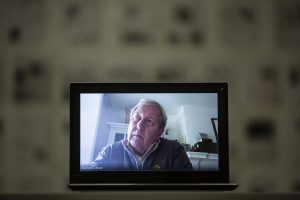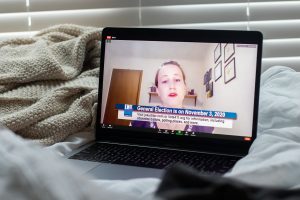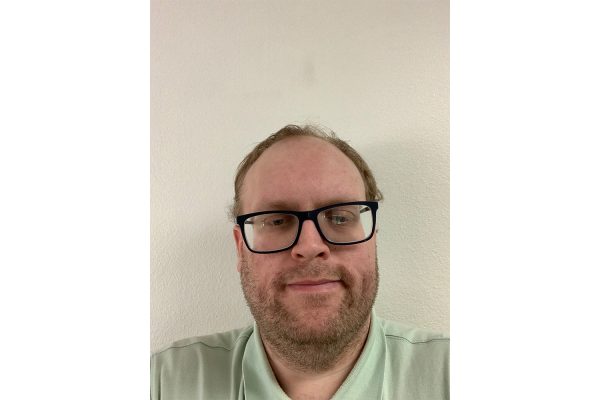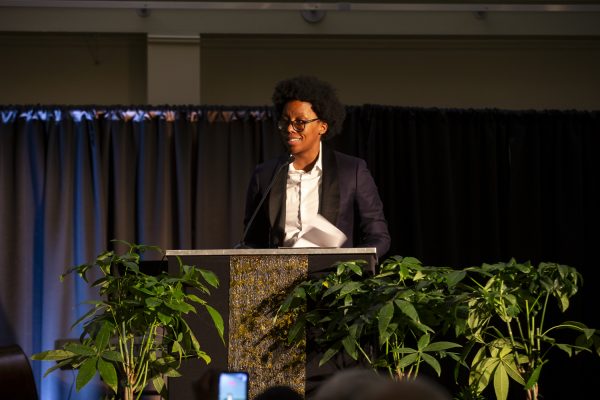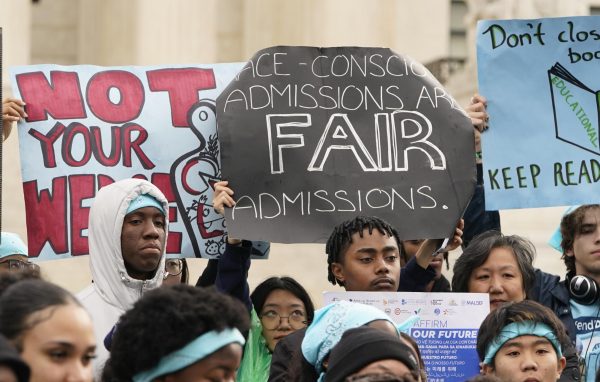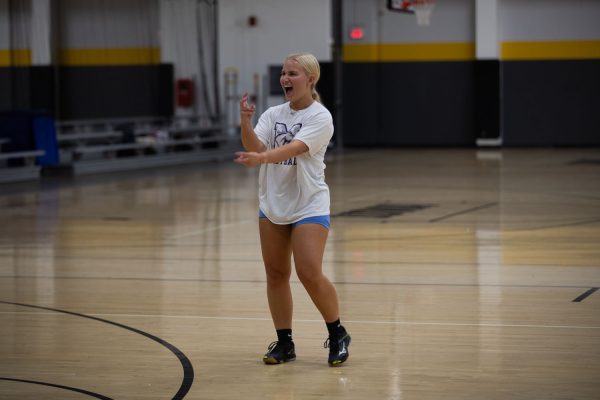Students embrace hidden disabilities
With disability awareness month approaching, students at the University of Iowa with invisible disabilities are speaking out about the stigmas they feel on campus.
I was diagnosed with bipolar II disorder a little over a year ago, just a month before the most important academic and professional year of my life. As the politics editor of The Daily Iowan during caucus season, I was spending 20-plus hours a week in the newsroom in addition to class work and on top of several trial-and-error medication regimens.
Bipolar II disorder is different from bipolar I, or the condition often depicted in movies and TV shows. Deep, sometimes months-long depressive episodes are the core of bipolar II, and rather than experiencing manic episodes, I experience hypomanic behavior. For me, this has taken the form of loud, uninterruptible speech and heightened irritability.
Mental-health disorders and other hidden disabilities make college life difficult. Hidden or invisible disabilities can be used as an umbrella term to describe dozens of neurological and physical impairments that are not immediately visible.
According to the Center for Disability Rights, a non-profit advocacy organization based in New York, people with hidden disabilities are often scrutinized by others for looking “able-bodied,” which leads to criticism from friends and family about a person’s disability status. As a result, people under these conditions will often go out of their way to mask their disability, furthering the stigma that makes it difficult for people to speak out.
I’ve fallen behind on classwork more than once because of depressive episodes, and I’ve been too afraid to reach out to my professors to explain what was going on. Would they take me seriously, or would they think it was just an excuse?
I refused to acknowledge the seriousness of my mental-health issues for a majority of my life. I know what it’s like to hit an unthinkable low, and I often wonder how I was able to function through high school and part of college without medication – which has significantly helped me control my mood and clear my head. It was extremely difficult for me to make friends. Not because I didn’t want to, but because I couldn’t bring myself to.
I’ve had tense moments with past roommates while I was irritable or sad for no particular reason, and it was exhausting to constantly keep my mood in check for the sake of co-existing with other people. At 20 years old, this is when I realized my mental-health issues were not going away and I needed to seek help.
According to WebMD, about six million Americans are diagnosed with a form of bipolar disorder. That translates to more than 2 percent of the population. For how common this disorder is, it’s disheartening to see it depicted in dramatized and sensational ways. Bipolar II has affected my productivity, my friendships, and my day-to-day life that likely go unnoticed or unexplained to those around me.
For me, living with a hidden disability has meant suffering in silence, a fear of rejection, and feeling like my disorder isn’t valid because some people don’t see it.
Director of the University of Iowa Counseling Services Barry Schreier said when talking about hidden disabilities, it’s important to note that some people might have a condition but don’t consider themselves to be disabled.
“It’s kind of the idea of somebody who walks around with a chronic disease — who has a disease — but isn’t sick,” Schreier said.
Schreier said UI counseling services typically sees anywhere between 9 and 10 percent of students enrolled at the UI in a given year. He said students with mental health and other disorders do face prejudices on campus, and it shouldn’t be their job to have to share their diagnoses with others in order to explain their behavior.
“People do face negative judgments…because people are assuming you’re having trouble because something’s wrong with you, rather than you’re having trouble because you’re trying to manage something,” he said.
Director of the UI Office for Academic Support and Retention Mirra Anson said when students drop out of classes, part of the withdrawal process includes a survey asking them why they’re dropping out and if the UI can provide them with needed resources. She said the questionnaire isn’t mandatory to answer, but of the students who do respond, mental health concerns is the reason most frequently identified.
Anson wrote in an email to The Daily Iowan that since the office began the surveys 10 years ago, mental-health concerns has been among the top reasons for the last several years.
“What I have seen that is more unique to the UI is the nature of collaborations between several offices to provide holistic support to students during the withdrawal process,” she wrote.
The university runs a program called UI REACH (Realizing Educational and Career Hopes), which is a comprehensive transition program to help students with a variety of disabilities navigate college.
Michael Vratsinas is a third-year student and vice president of the UI REACH student council. Vratsinas said growing up with autism made it difficult for him to engage with other children at a young age. In elementary school, he said he felt his brain would sometimes get overloaded with
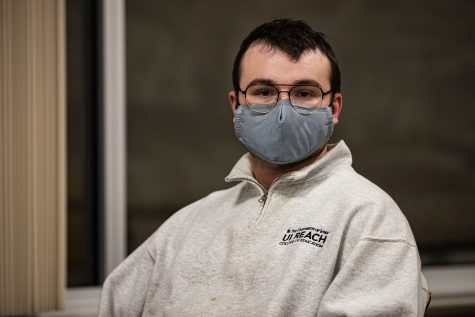
information, and he would find himself daydreaming in class.
His mom was a huge help to him, he said, and she did all she could to make sure he felt supported.
Once Vratsinas entered middle school and high school, he played football, and many of his friends weren’t aware of his diagnosis. Now, he said when he meets people outside of the UI REACH program, he knows his diagnosis may eventually be a topic of conversation.
“Some people are cool with it, some people are not, but you know, that’s when you find out, are they really supportive of you?” Vratsinas said. “You have to make a judgement … so it’s just having the courage to speak up and say that you have [autism].”
Vratsinas said he’s proud to have autism and he hopes speaking about it and bringing awareness to the disorder can help stop some of the stigma.
Third-year student and UI Reach member Sam Rame was diagnosed with autism at 2 years old. He said throughout his life, he’s had to practice social skills such as eye contact, listening, and adjusting his tone of voice.
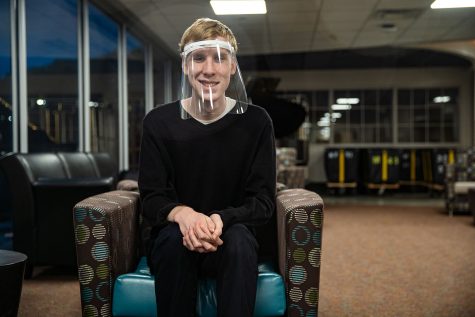
Rame said the program has taught him independent-living skills and social skills for both formal and informal settings around campus.
“Everyone is born different,” Rame said. “But I don’t see anyone as sounding or looking different. It’s all about the person. It’s all about how I communicate with the person.”
Rame called his time in UI REACH an adventure, and that he’s hoping his next adventure will lead him to working in elementary education in Iowa City as a paraprofessional or a substitute teacher.
“I’ve had a lot of challenges with coping with my behavior, with shouting and frustration,” Rame said. “What I didn’t know is what I’m willing to know now.”
I feel fortunate that I have a platform to share my story and the stories of others, especially during an extraordinary time in American, and UI, history. I feel fortunate that I was able to seek resources when I realized I needed help, and my support has allowed me to excel in my career path.
If you feel like you need help, there are resources on campus. It took a long time for me to realize that asking for help and getting treatment is not a sign of weakness. It takes bravery to walk into a doctor’s office and open up about deeply personal feelings, but I urge people to make that leap when they feel ready.
To make an appointment at UI counseling services, visit counseling.uiowa.edu. If you want to apply for disability accommodations, visit sds.studentlife.uiowa.edu. Here, the office can also help determine if you are eligible.
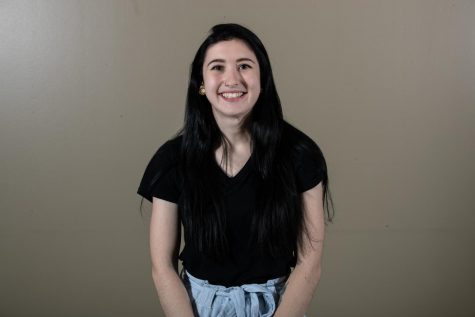
(she/her/hers)
Email: [email protected]
Julia Shanahan is the Politics Editor at The Daily Iowan and a senior at the University of Iowa studying...
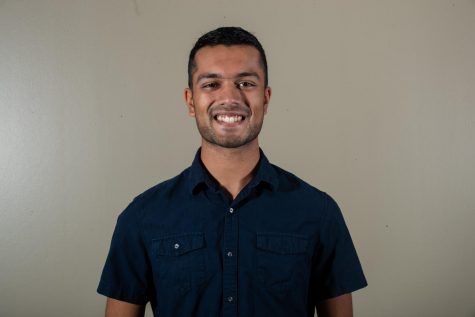
Email: [email protected]
Shivansh Ahuja is a Photojournalist at The Daily Iowan. He is a senior at the UI majoring in mechanical engineering,...



